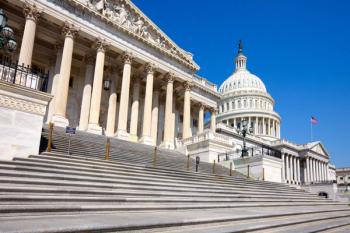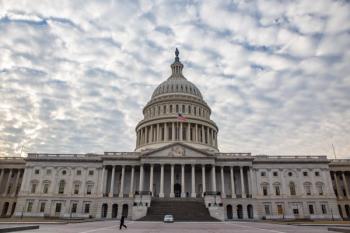
Healthcare leaders should pay attention to what's happening at the state level. States have passed dozens of laws regarding healthcare in the last few years.

Healthcare leaders should pay attention to what's happening at the state level. States have passed dozens of laws regarding healthcare in the last few years.

A nurse was assaulted by a patient’s family member in a Louisiana hospital. Nurses have said they’ve faced more threats of violence during the COVID-19 pandemic.

Healthcare systems in urban and rural areas face similar problems: too many patients, staff shortages and unprecedented stress.

The system is spending more than $1 billion in projects over the next year, including a new hospital in London.

With more information available on phones and watches, most data is now health data, Penn researchers say. But a new study shows many have privacy concerns.

In other news, CHI Health gets a new CEO, the University of Vermont Health’s leader is retiring, and other systems announce new leaders.

The Government Accountability Office faulted the agency’s leadership in emergencies, including the coronavirus pandemic.

In a bipartisan effort, nearly 200 members of Congress have asked the Biden administration to look into the issue. Some say staffing agencies are charging far more than they did before the COVID-19 pandemic.

Millions of healthcare workers must get both doses of the vaccine by the spring. The federal government now has a timetable for every state.

Clinicians and administrators say the pandemic is affecting their sense of safety, and dealing with medical waste adds to the stress, according to a report by Stericycle.

The company continues its strategy of expanding in fast-growing areas of the country.

Women are seeing fewer patients and putting in more hours on documenting health records, a report from athenahealth says. As a result, female clinicians could end up earning less.

There was a nursing shortage before the pandemic and the situation is even worse now. A new study points to the need to recruit and retain more nurses around the world.

The American Hospital Association asks Biden, Congress to release billions to healthcare organizations struggling with the surge of coronavirus patients.

Investors project more deals to be done due to the transformation of healthcare and a host of other factors.

The typical breach costs several million dollars. Attackers have realized hospitals are prime targets, so healthcare leaders need to make protecting their systems a top priority.

Self-insured organizations seeking cost containment solutions need end-to-end targeted solutions to reduce the likelihood of adverse events.

Kaiser Permanente picks a president for the Georgia market, and Denver Health’s CEO is planning to step down this year.

The administration is offering grants to healthcare organizations to develop or expand mental health programs.

Black patients were more likely to have negative descriptions. The authors suggest bias in records could exacerbate inequities in healthcare.

A new study highlighted the challenges for those working in supportive healthcare roles. Those workers need more support, the lead author says.

The U.S. Supreme Court’s ruling allows the government to require most healthcare workers to get vaccinated. Here’s a look at the deadlines and federal guidance in the wake of the ruling.

The Medical Group Management Association outlines its priorities for the year ahead.

Look for a push for more COVID-19 relief for hospitals, more aid for medical research and pandemic preparedness.

The Association of American Medical Colleges’ latest study on the physician workforce sheds light on the doctors practicing in each state.